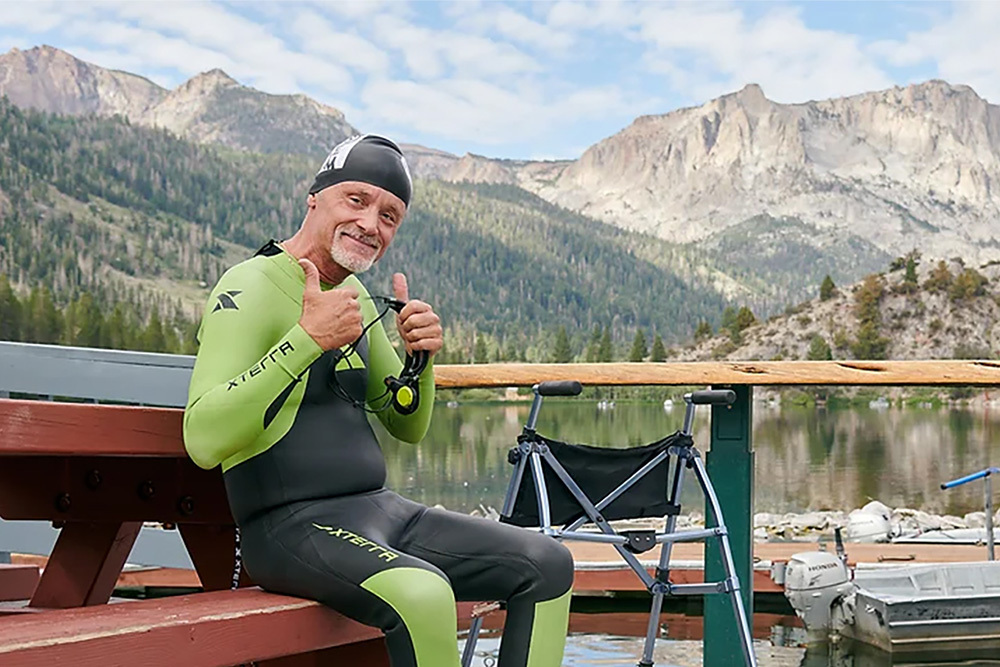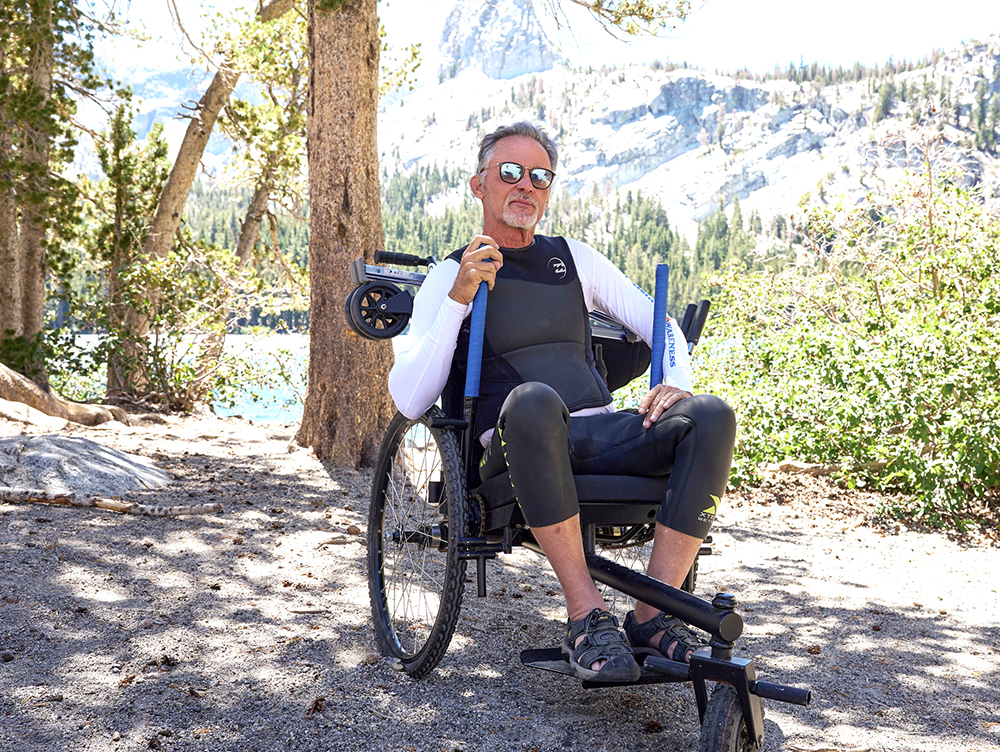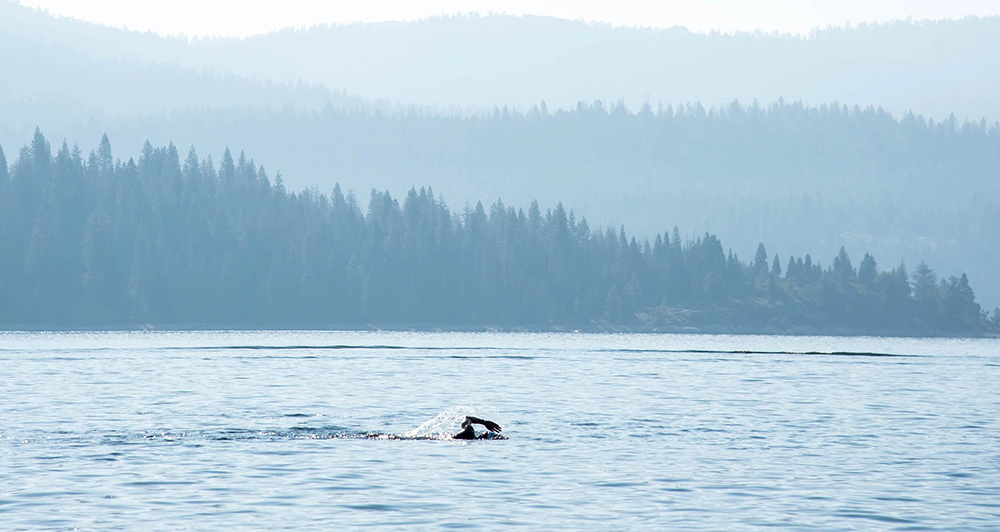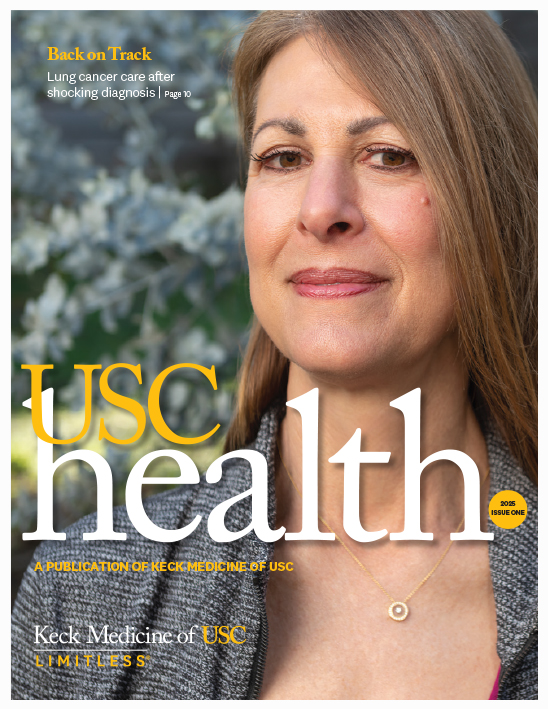
Multiple sclerosis has changed Richard Gardner’s life, but it hasn’t affected his resilience or generosity. Now, he swims to raise awareness and research funds.
One day in 2001, Richard Gardner, then 41, was in the shower when he realized that the left side of his body was numb.
“I thought maybe I had some sort of a stroke,” says Richard, now 63.
The incident passed, but Richard, a type 1 diabetes patient since his teens, wasted no time making an appointment with his endocrinologist, who referred him for an MRI.
It wasn’t long before Richard was diagnosed with multiple sclerosis (MS), an autoimmune disorder where the immune system attacks the myelin sheath — the protective covering of the nerve cells in the brain, optic nerve and spinal cord.
Richard, a commercial finance salesman at the time, went into his office restroom and wept. When he emerged, he remembers, it was with an iron-willed determination.
A lifelong athlete, Richard grew up in a family that encouraged tenacity and resilience. He found a neurologist specializing in MS, began treatment and did some research.
Exercising after an MS diagnosis
Over the years, MS has affected Richard’s vision, balance, memory and cognition, speech, swallowing, and bowel and bladder control. He also experiences muscle spasms, shooting pains throughout his body, numbness in his limbs and abdomen, weakness and fatigue.
In 2013, the impact of work-related stress on his health led him to early retirement.
As MS took its toll on his legs, Richard also had to give up outdoor sports such as skiing, surfing, rock climbing and mountain biking.
Richard’s upper body, however, has remained strong enough to allow him to swim with a pull buoy supporting his legs.

Shortly after Richard retired, a friend recommended that he try open-water swimming. He decided to join her for a swim off Redondo Beach Pier and was instantly hooked.
“It’s about reconnecting with nature and myself,” he says.
After a couple of years, he realized he could channel his newfound passion into a unique form of advocacy.
In 2018, Richard did his first fundraising swim and sent the money to Keck Hospital of USC, where he had been receiving treatment. He would go on to swim a new lake every year and contribute the funds to research and organizations that help MS patients.
MS treatments and therapies
Currently, there is no cure for MS, and while new therapies are continuously released into the market, what works for some may not work for others.
“Although there are over 20 therapies available to treat MS, many fall short in halting progression,” says Lilyana Amezcua, MD, MS, chief of the USC Multiple Sclerosis and Neuroimmunology Program, part of Keck Medicine of USC, who has treated Richard for 11 years.
A USC alum, Richard looked to Keck Medicine for specialized care when his doctors began to run out of treatment options.
It’s about reconnecting with nature and myself.
Richard Gardner, patient, USC Multiple Sclerosis and Neuroimmunology Program
“We tried the latest advances at the time, but he continued to progress,” Dr. Amezcua says. “What I find particularly notable is that his own progression has not deterred him from having hope and seeking to help others.”
Richard is helping to advance MS treatment options by participating in clinical trials for new medications, including random, double-blind trials that come with a risk of receiving a placebo.
Dr. Amezcua notes the altruism required to volunteer for trials like these, but Richard says he has not had further progression in the four years since the current trial started.
Spreading awareness for MS
Both Richard and Dr. Amezcua say that MS awareness is crucial for research funding and participation, as well as expanding patient access to different treatments.
“It’s also important in removing unconscious biases and social stereotypes about MS,” Dr. Amezcua says. “We now know that MS is a disease that can affect any racial or ethnic background, when it was previously considered a disease that only affects people of white European background.”
With Richard as her patient, it was only a matter of time before they realized that they shared a mission. Both seek to spread awareness year-round.

This August, Richard will swim three high-elevation California lakes: Lake Ellery and Tioga Lake on Aug. 2, and June Lake on Aug. 3, with funds going to Keck Medicine for MS research.
To prepare, Richard set a goal to swim 250 miles this year, or five miles per week. When an injury takes him out of the water, as a serious gluteus strain did this spring, he recalculates the average.
When it comes to facing obstacles, Richard credits the support of his family and friends, particularly his lifelong high school friends who kayak beside Richard on his swims to help keep him safe.
Richard says that being an advocate has changed his life.
“It gives me purpose and self-worth,” he says. “I’m more than honored to help.”
Interested in supporting the work of Keck Medicine? Visit this page.
Topics


